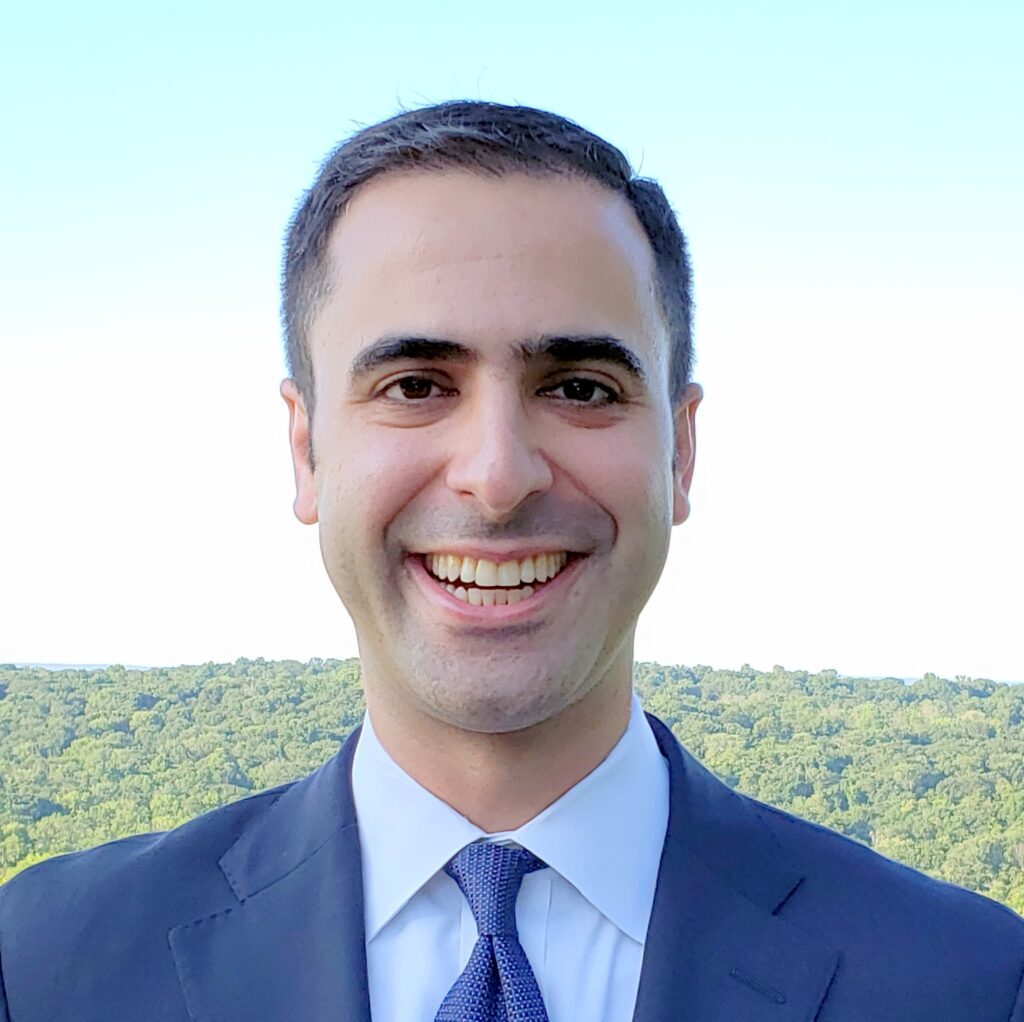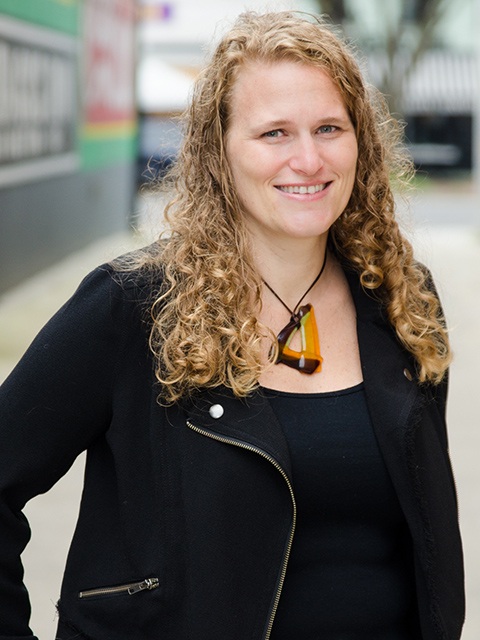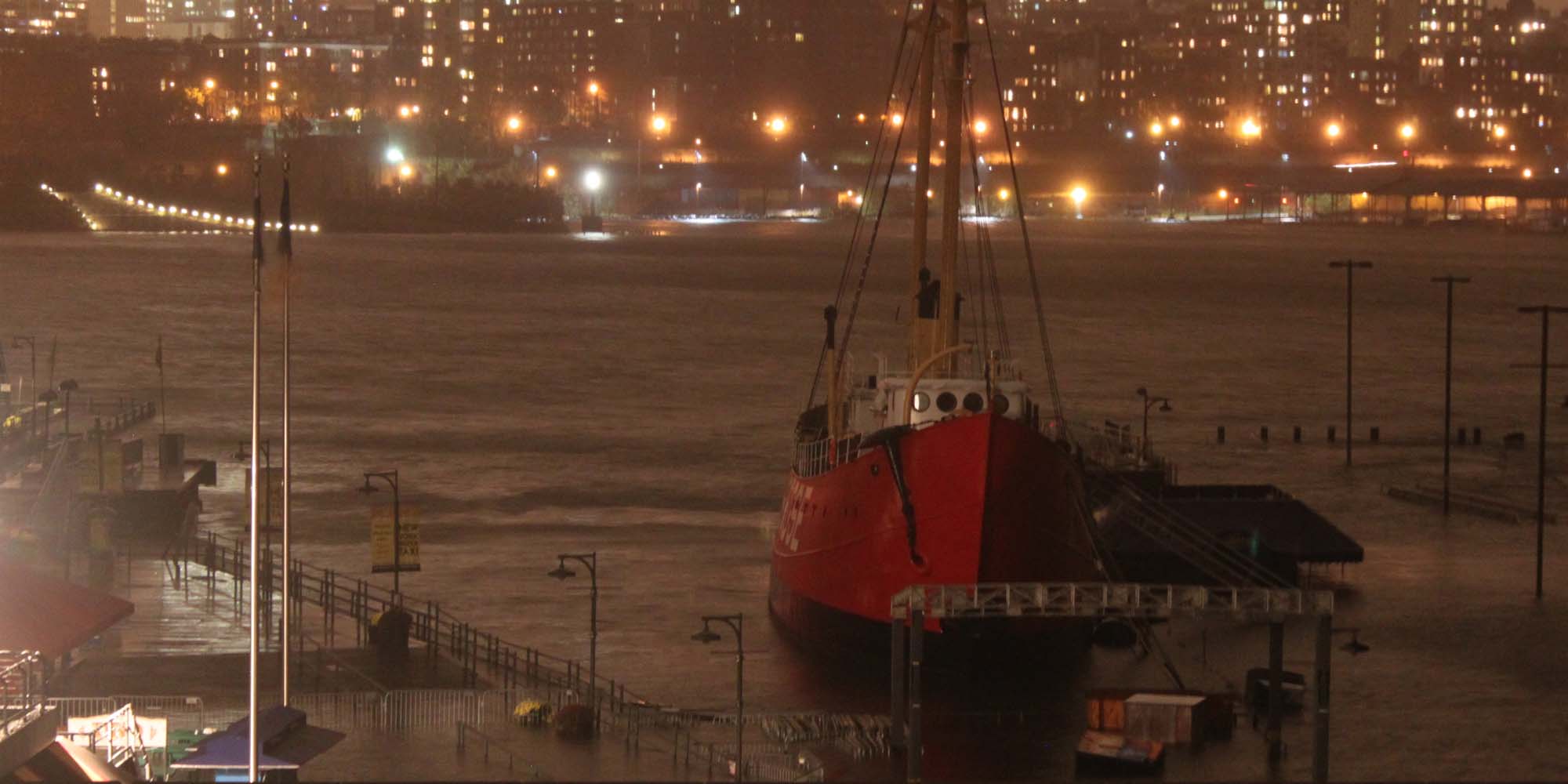October 26 | 6pm | In-Person | The Green Room at Pier 17 | Free
With the devastation of Hurricanes Fiona and Ian fresh in our minds, preparedness and solutions for future natural disasters are ever-salient. A decade after Superstorm Sandy, the Seaport Museum takes a timely look back to see what has been learned over the past decade, and what potential solutions could safeguard against future disasters.
Where is the hope? What have we learned? What are people doing to safeguard against future disasters? Meet some of the individuals from around the world who are thinking about solutions for the future. Guest experts include David Mazzuca (instructor at the National Center for Disaster Preparedness at the Columbia University Climate School), Matthijs Bouw (Dutch architect and founder of One Architecture and Urbanism), and Rebecca Kennedy (Collections Care Specialist).
The event is FREE, and advance registration is required. A complimentary toast is included.
Please Note This is a Past Program, Event, or Activity
You are viewing an archived page for a program, event, or activity that has already taken place. In most cases these pages are no longer actively maintained and because of that may contain inaccurate or out-of-date information. These pages are left publicly viewable to preserve institutional memory and to allow the public to learn more about the types of programs, activities, and content created and made available by the South Street Seaport Museum throughout its history.
The Green Room is located inside the Pier 17 complex, at 89 South Street, offering a panoramic view of the Lower Manhattan skyline and the Brooklyn Bridge. Look for elevators or escalators to take you to this event on the third floor. The use of this space has been kindly donated by The Howard Hughes Corporation.
About the Panel

David Mazzuca is an instructor at the National Center for Disaster Preparedness at the Columbia Climate School, Columbia University. He teaches a series of courses on whole community disaster economic and housing courses for the state, local, tribal, and territorial (SLTT) jurisdictions in order to foster, sustain, and coordinate delivery of core capabilities across all levels of government. Earlier this year, he was a Hitachi International Affairs Fellow at the Council on Foreign Relations. He was in residence at the Disaster Prevention Research Institute, Kyoto University, where his research focused on community-based disaster risk reduction in Japan. From 2015 to 2019, he served as Assistant Director for Housing Recovery with the Sandy Recovery Division, State of New Jersey. In that role, he was responsible for administering the delivery of New Jersey’s post-Sandy $1.4 billion housing restoration grant program portfolio. Preceding his tenure with the State of New Jersey, he served as a consultant with the U.S. government services practice of BAE Systems. He has lectured at Columbia University, Kyiv School of Economics, Kyoto University, Tokyo Metropolitan University, University of Tokyo, Kumamoto University, and the International Recovery Platform (IRP) of the United Nations Office of Disaster Risk Reduction. He was a 2018 Marshall Memorial Fellow and is a term member of the Council on Foreign Relations.

With over 15 years of experience, Rebecca Kennedy of Curae Collections Care, provides support to cultural institutions in need of collection care services. The collections care encompasses collections management, registration, preservation and collections emergencies. Rebecca is certified in First Aid to Cultural Heritage in Times of Crisis from ICCROM giving her the tools to train cultural institutions in emergency preparedness and response. Rebecca is the former Chairs of the ARCS and AIC’s Emergency Committees. She is also the former chair of the DC Alliance for Response and was an inaugural member of the Smithsonian’s Preparedness and Response in Collections Emergency (PRICE) group. She uses this experience to train and prepare cultural institutions for all size and type of emergencies. Rebecca is an instructor for the George Washington University’s Museum Studies program, teaching Collections Management as well is an editor for the Collection Journal. She is also a Professional Associate (PA) of AIC for her contributions as an allied professional to the conservation community.
Matthijs Bouw is a Dutch architect and urbanist and founder of One Architecture and Urbanism (est. 1995), an award-winning Amsterdam and New York-based design and planning firm that is a global leader in the use of design for climate adaptation and mitigation. In New York City, the office co-led the BIG Team that won the Rebuild by Design competition for the flood protection of Manhattan, and is currently part of the multi-disciplinary teams executing the ESCR and BMCR projects, as well as planning the Lower Manhattan Coastal Protection project, including the recently presented FiDi/Seaport Masterplan. Other North American projects include various Boston Climate Ready district plans, Houston’s Resilient Neighborhoods Planning and Vancouver’s Sea2City. In Asia, the office works on numerous ‘building with nature’ and urban climate resilience projects for clients such as ADB, the World Bank and WWF. In the Amsterdam region, the office is laying the groundwork for two climate robust urban developments, Amsterdam-Havenstad and Almere-Pampus, each comprising of some 30.000 new houses. Bouw’s most recent book, Building with Nature, focuses on nature-based solutions for climate change adaptation and mitigation. In 2022, his book Managing the Climate Crisis: Designing and Building for Floods, Heat, Drought, and Wildfire, co-authored with Jonathan Barnett, will be published by Island Press.

